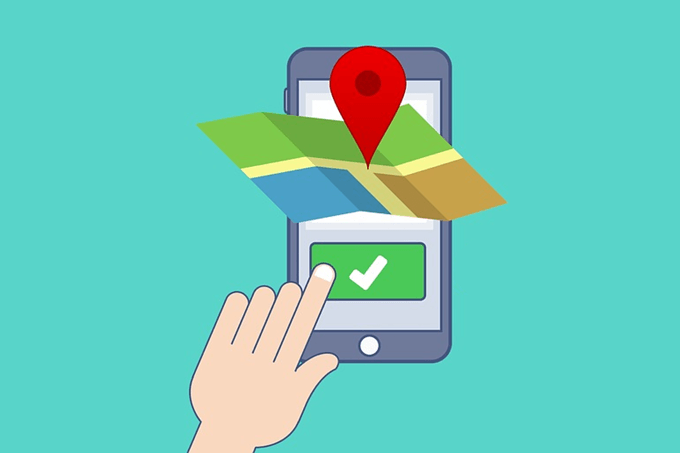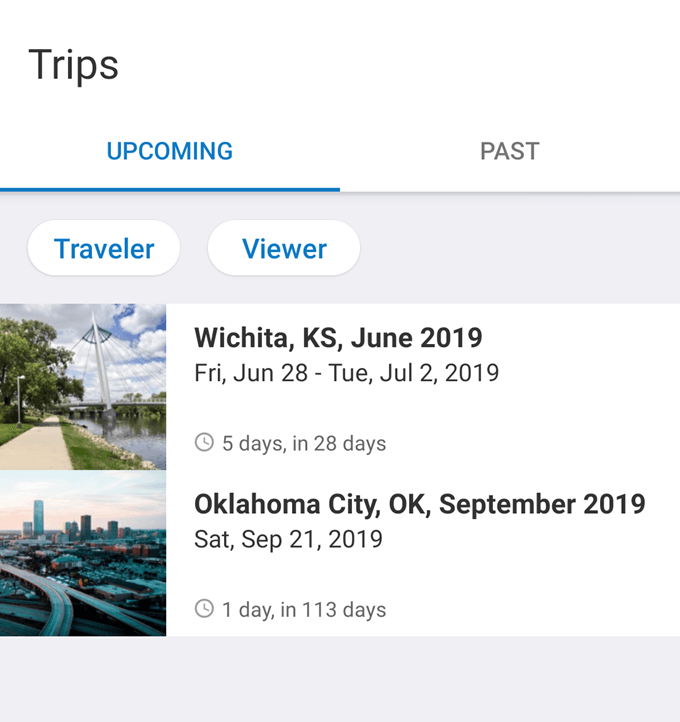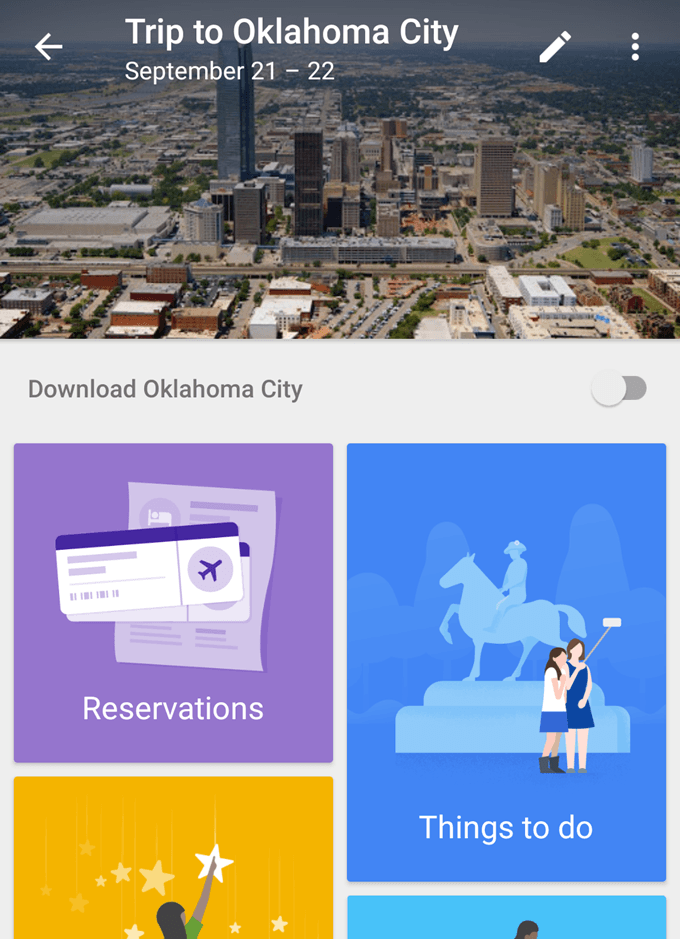We give you the lowdown on which to use
Organizing flight reservations, booking hotels, and renting a car can be both frustrating and time consuming. Fortunately, there are free travel apps that can not only consolidate all of these tasks but also give you tips on your travel destination.
Of all the travel apps out there, which one is best for you? How do you know which to use? There are several options, but we’ve narrowed it down to two: Google Trips and TripIt.
Here’s a list of must-haves when it comes to choosing the right service:
- Easy to use and mostly automatic itinerary creation
- The ability to share an itinerary with others
- Automatic updates for flight changes
- Data synchronization across multiple devices
- Smooth and easy-to-use user interface

Tip: You might also like to use a travel app that helps you find travel deals.
TripIt
TripIt provides both a free and paid service ($49 a year) for those who travel frequently. TripIt Pro includes a few extra features like real-time flight alerts, seat tracking, and an alternate flight finder. However, for most of us, the free version should be enough.

TripIt is straightforward in its execution. Simply forward to TripIt all confirmation emails from the services you’ve purchased (e.g., hotels, car rentals, tours), and the app will instantly create a travel schedule that’s right for you. You can also have it scan your email for new confirmations so that it can auto-add and organize them into trips in the app.
The TripIt travel app not only consolidates all services into one place, but also tells you when to arrive at your flight gate, when to pick up your car rental, and when you’re able to check in at your hotel. TripIt even keeps all of your restaurant reservations in one place!
We also really like the alerts you can enable in the TripIt app. You can receive notifications for when booking emails have been received, when an upcoming trip is approaching (as if you’d forget!), and for when the trip itinerary has been shared.
There’s also a neat calendar subscription feature built-in to TripIt so that you can share your travel calendar (as an ICS file) with anyone, and all they have to do is add your feed URL to their calendar. It’s as simple as that to share your travel plans via calendar events.
Google Trips
Google joined in with their own “personalized tour guide in a pocket” app known as Google Trips. When you sign up with Google Trips, Google automatically synchronizes the app with your Gmail account, so reservations are added to your travel schedule immediately, which is super handy. You can also enter your own reservations manually.

The Google Trips app also has an offline mode that lets you open your schedule even when there’s no internet connection, which is perfect when you don’t have cell service or Wi-Fi, and doubles as a battery saver when needed. Offline mode works for your entire destination guide, too.
This is all starting to sound similar right? The big stand out with Google Trips is their combination of data from Google Maps and crowdsourced contributions from what people post about restaurants, tourist attractions, points of interest, and more. The Things to do tab shows local sites such as historical sites, museums, parks, shopping, and kid-friendly places of interest.
Google Trips also has useful information on transportation, including walking routes, ride sharing services, and public transportation. While you’re searching for a ride, you can access information over local dining venues, bars, and clubs, or even a place to get a good cup of coffee.
As an added bonus, Google Trips includes a discount tab, its items of which vary depending on the destination but might include money off things like car rentals, plane tickets, tours, events, and even select restaurants.
If you’re not sure whether you really want to visit any particular place while on your trip, just mark it as a location that you might want to visit, and it’ll be stored in Saved places. This is a great way to plan a rough trip without feeling like you’re tied down to a super-strict schedule. All of your saved places can be browsed on Google Maps for an awesome overlook of all your potential visits.
The Differences
Nobody is stopping you from using both services, but a key difference between TripIt and Google Trips is their travel itinerary features, or Google’s lack thereof. For example, TripIt lets you add an extra traveler who can share suggestions and edit trips, which is extremely useful if you’re bringing someone with you but they have ideas for the trip, too.
What Google Trips does bring to the table is their ability to pull together suggested day trips with a Google Maps plan. This lets you see sites on interesting listings, making the service feel more like a personal e-guidebook.

Plus, Google Trips is simply easier to use. You can install the app, log in with your Google account, and see all your past and upcoming trips in literally seconds. Quickly finding things to do in a new town and locating restaurants on the fly will be what you walk away with when you use Google Trips.
TripIt includes an auto-add feature from email, too, but it doesn’t seem as streamlined. However, it’s a bit more customizable and includes easy-to-use web access (Google Trips can be used online, too). If you like to be hands-on with your trip and store specific details like your passport and driver’s license, you’ll enjoy that app.
Both TripIt and Google Trips are available on Android, and iOS and are absolutely compatible with each other. In other words, you can use both apps at the same time without feeling like they’re tripping over each other.




